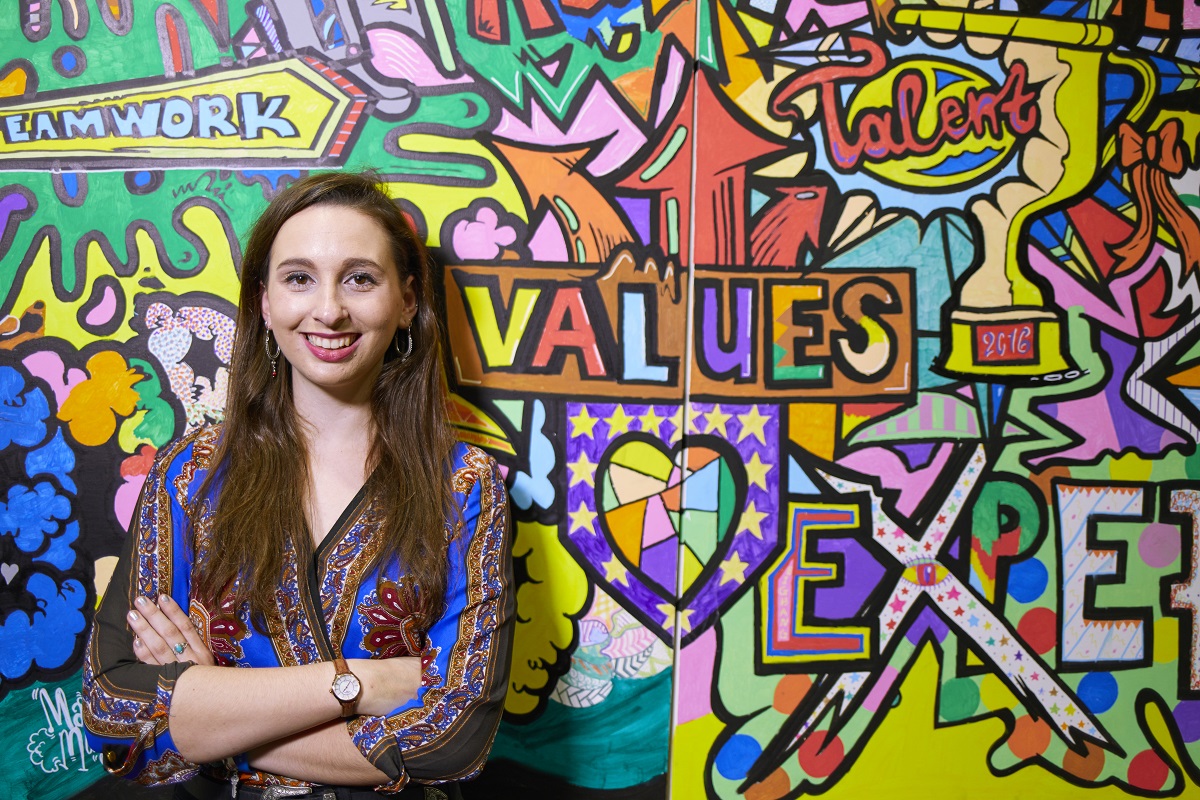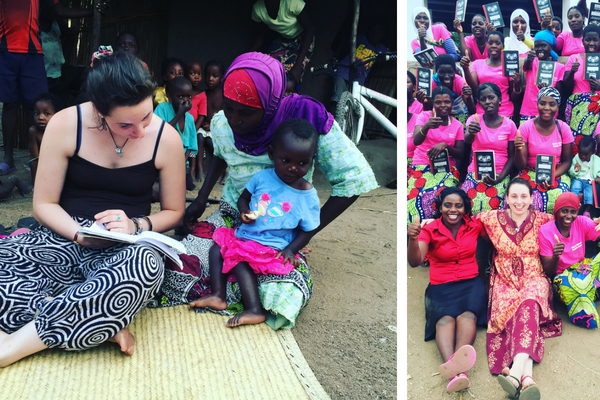Blog – United Amayi’s Emma Leering on ‘Walking a Different Path’
Date 27.11.2018
27.11.2018
In her latest blog, we hear from International Development graduate, Emma Leering, CEO and founder of the Malawi-based charity – United Amayi. Emma shares the inspiring story of how she founded United Amayi; which provides education to under-privileged women in Malawi. She explains how the University’s Changemaker Hub helped expand her project and Emma’s hopes and plans in a crucial next five years for the blossoming charity …

As a strong-willed, independent youngster, I always knew that I didn’t want a traditional job. I didn’t like the thought of working for someone else, and couldn’t picture myself as a solicitor, doctor, shop owner, or anything else careers advisors spoke of. On top of that, I also have dyslexia, which means things sometimes take a little longer and a lot more effort. So, when I left school, I decided to take a year out working as a primary school teacher in Malawi. And that’s where I found my calling.
I lived in a very poor village called Bolera and was made to feel incredibly welcome in the community – Malawi isn’t called the ‘Warm Heart of Africa’ for nothing! During my time there, I taught the village chief some conversational English, which is the official language of the country. A short time later, the women of the village approached me and asked if I would teach them, too. I knew that over half of women in Malawi were married by their 18th birthday, and only 15 per cent ever made it to secondary school, and I felt compelled to help.
So, at the tender age of 18, I set up a school to teach the women English, in the hope that it would improve their employment prospects and help lift them out of poverty. As I tearfully said my goodbyes at the end of my 12-month stay, I promised to continue running the school for the women. Being young, I understood that I may not have had all the skills and knowledge I needed to coordinate a school from over 5,000 miles away. And I didn’t want to take away the autonomy of the villagers, just provide them with what they needed to get more freedom and choice out of life. So, I created a charity called United Amayi (Amayi meaning ‘women’ in the local language, Chichewa) and employed local women to teach and coordinate the school’s activities while I returned to the UK to complete a BA in International Development.
It wasn’t easy to keep things running smoothly in Malawi alongside studying and working to cover my living costs. But somehow, I managed it. The University of Northampton have a fantastic Changemaker team, who help students that want to make a positive impact on society. With their expert help and advice, I built up a strong profile and made some excellent contacts through networking with academics and other charities operating in the area. My studies also helped benefit my work; I was able to assess and analyse the effectiveness of other charity programmes and soon realised that sustainability was key to creating a lasting, ethical organisation for the women in Malawi. The charity had survived on the kind donations of a few supporters that I knew personally, which needed to change if United Amayi was to continue.
Nearly five years after the school was first set up, we now serve two villages and 80 women a year go through our education programme. Furthermore, we’ve increased the number of programmes so that we can also assist the women into paid employment or train and fund them to start their own enterprise through our partner charity, Time Malawi. United Amayi is operating under a solid structure with a plan to generate our own income and expand to five villages in the next five years so that we can help even more women open more doors for themselves in Malawi.
Being the CEO of a women’s development charity is hard work, but seeing the women become more independent and confident is hugely rewarding. And the whole community is seeing the benefits of the programme; as one of our graduates so eloquently says, ‘teach a man and you teach an individual. Teach a woman, and you teach a family’. Throughout the whole experience, I have realised that it’s important to understand your strengths and weaknesses, and to not be wary of the latter. It’s my belief that we all work best when we work together, so don’t be afraid to draw upon the expertise and advice of others to turn your ambitions into a reality.